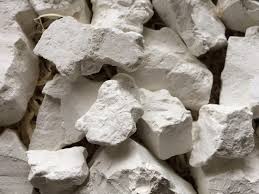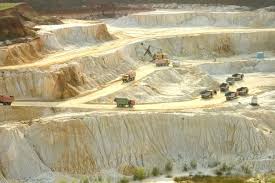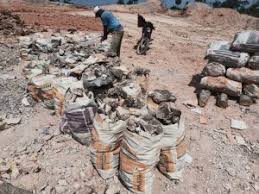![]()
If you’ve landed on this article page, you’re probably searching for a
good business idea—an idea that’s light on the pocket but heavy on
returns, promising both a fulfilling journey and potential profit.
|
How to invest in kaolin production for local, export markets
A report of the Nigerian Mineral Appraisal and Monetisation
Programme (NIMAMO) confirmed about 450 industrial minerals whose
deposits have been found in commercial quantities. These include
limestone, clay, feldspar, barites, gypsum, salt, tak1, kaolin,
phosphate, silica sand, magnesite, trona, asbestos, gold, and
graphite. Large kaolinitic clay deposits with a capacity of up
to 93 million tonnes have been identified all over the country,
particularly in states such as Oyo, Kaduna, Sokoto, Ogun,
Plateau, Borno, Ekiti, and Katsina states.
Kaolin is a weathering product of silicate rock, the naturally
occurring hydrated aluminum silicate which may be white,
yellowish-white, earthy, non-porous and odourless to dull and
has a plastic and slightly oily feel. It is almost tasteless and
practically insoluble in water.
The vast deposits are in Plateau, Bauchi, Niger, Kwara, Enugu,
and Benue. Among all the states, Katsina provides the best
quality Nigerian kaolin. Mining experts said it is one of the
purest kaolinitic minerals that are great for pharmaceutical
industries. Kaolin is a hard solid and versatile industrial
mineral product with wide applications in industries, and
agriculture among others.
Specifically, kaolin is widely used in many industries
including; soap, detergent, rubber, cosmetics, paints (as
fillers), plastics, chalk, fertilisers, pharmaceuticals,
toothpaste, ceramic, insecticide, pulp and paper, agro allied
industry, and iron and steel.
The Blunger blunges the kaolin and the output is collected in a
concrete bump from where it is lifted by a pump to the screens.
The screens will remove the coarse sand and grit and the slurry
is collected in a second lump. This process goes on from a
second lump to a cyclone to septic tanks and the slurry from the
septic tank is discharged into propylene (synthetic) bags. It is
from these synthetic bags that water is squeezed out from the
slurry. This final process gives the kaolin cake.
Kaolin is one of the industrial minerals that can be found in
commercial quantity. In fact, Nigeria has an estimated reserve
of about two {2} billion metric tones of kaolin deposit
scattered in different parts of the country to include ogun,
edo, plateau and Nassarrawa states.
The market for kaolin is large, sustainable and expanding
because of the numerous applications of the product. Also there
is an outright ban on the importation of kaolin into the country
in order to stimulate the growth of the local industry.
Kaolin can be supplied in raw or processed form depending on the
requirement of the buyer. There is market for the raw and
processed kaolin in Nigeria and abroad but I would dwell on the
processed one for the supply in the local market.
There are no standard methods of processing for the treatment of
different types of kaolin. Primarily the processing priority and
the choice of suitable machines and equipment depend on the
mineralogical spectrum of the crude kaolin and on the demands
concerning the quality of the end products. The essential
influencing factors which do not only determine the quality of
the products but also the effort which should go into the
technical processing are as follows:
– Type, %-proportion and particle size distribution of the clay
minerals
– Type and %-proportion of silicate, oxidic and sulphide
‘’impurities’’
– Electrochemical surface phenomena of clay minerals
– Technological demands on the quality of the end products.
The effects of each of the factors overlap and have either a
strengthening or weakening effect of specific quality
characteristics. Therefore each factor can only be determined to
a certain extent when assessing the attainable end qualities.
These factors provide little information for the lay-out of a
suitable process.
The kaolin cake is shredded or cut manually into small pieces to
provide a greater surface area for fast drying. The Kaolin cake
is then put in trays and fed into a chamber dryer which is
heated by hot air at about 2500C.
The dried cake is fed into a hammer mill or pulverizer, which
grinds the kaolin into the kaolin powder, which is then bagged
and weighed in 50kg synthetic bags with polythene inner linings
to keep off moisture.
Financial projection: Taking a hypothetical case of a plant that
produces 1,000 tonnes of 1090 grade and 2,000 tonnes of 1290
grade at prices of N65,000 and N80,000 per tonne respectively,
it has been estimated that a revenue of N250
million is realizable per year. All things being equal,
annual profit is estimated at about 58 million during the first
year.
Get our Practical Guide on Kaolin Production in Nigeria. Details
of the production process, technology for kaolin production,
markets and trade links and other information will be embodied
in a bankable feasibility report for interested investors.
|







